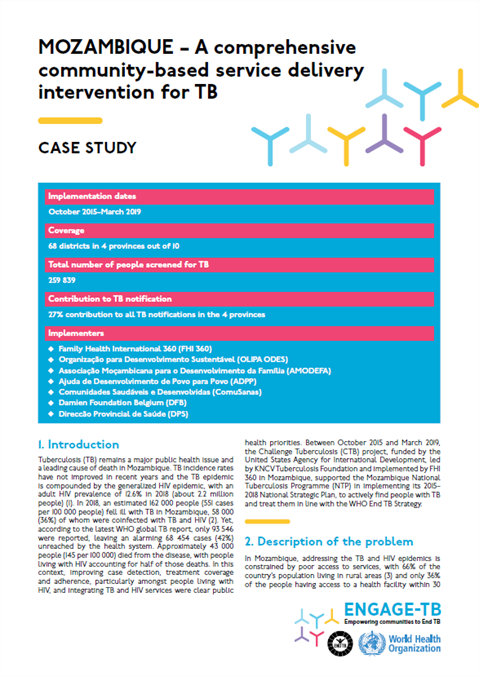Mozambique – A comprehensive community-based service delivery intervention for TB
Case study

Overview
Tuberculosis (TB) remains a major public health issue and a leading cause of death in Mozambique. TB incidence rates have not improved in recent years and the TB epidemic is compounded by the generalized HIV epidemic, with an adult HIV prevalence of 12.6% in 2018 (about 2.2 million people). In 2018, an estimated 162 000 people (551 cases per 100 000 people) fell ill with TB in Mozambique, 58 000 (36%) of whom were coinfected with TB and HIV. Yet, according to the latest WHO global TB report, only 93 546 were reported, leaving an alarming 68 454 cases (42%) unreached by the health system. Approximately 43 000 people (145 per 100 000) died from the disease, with people living with HIV accounting for half of those deaths. In this context, improving case detection, treatment coverage and adherence, particularly amongst people living with HIV, and integrating TB and HIV services were clear public health priorities. Between October 2015 and March 2019, the Challenge Tuberculosis (CTB) project, funded by the United States Agency for International Development, led by KNCV Tuberculosis Foundation and implemented by FHI 360 in Mozambique, supported the Mozambique National Tuberculosis Programme (NTP) in implementing its 2015– 2018 National Strategic Plan, to actively find people with TB and treat them in line with the WHO End TB Strategy.
